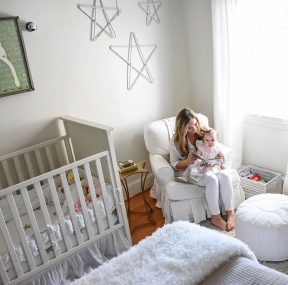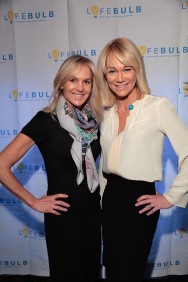Managing inflammatory bowel disease is no small feat. Whether it’s determining which foods and drinks are your triggers, tracking your fatigue, staying on top of medications, keeping all your doctor’s appointments in order…the list goes on, and it’s a lot. Oftentimes as patients, we have so much to juggle in our everyday life that we can lose sight of when our bodies give us signals that a flare up is on the horizon. It’s can be easy to hide behind a smile and ignore symptoms. Your normal is different than the average persons. Your pain tolerance, perspective and the way you experience life are unique. Most people don’t have to put so much thought into meal time and think of bathroom breaks as a stress.
This is where Oshi Health’s new mobile app comes in.  The app features tracking, curated learning, and expert Q&A. Click here to watch a short YouTube video about all the app has to offer.
The app features tracking, curated learning, and expert Q&A. Click here to watch a short YouTube video about all the app has to offer.
As a blogger and patient advocate, I’m thrilled to be one of the contributing writers featured on the app. You’ll find new articles from me pertaining to dealing with the diagnosis, friendships, relationships and motherhood with IBD. The exclusive content features real-life s buccess stories, easy-to-understand information on emerging treatments, and delicious IBD-friendly recipes.
Keeping track of daily factors—such as sleep, diet and exercise, along with symptoms can help us better understand the causes of our flare-ups and how to best achieve remission.
The all-in-one app’s features include:
- Fresh Content: Daily doses of inspiration and information
- Tracking: Short-term and long-term trends including well-being and symptom scores
- Integration: Compatibility with leading fitness devices, sensors, and wearables
- Reminders: Helpful notifications to stay on track with IBD wellness
- Surveys: Bi-weekly progress checkpoints
- Expert Q&A: Professional feedback from gastroenterologists and medical professionals
- Security: Best-In-Class data privacy with state-of-the-art encryption
“Oshi is a free mobile app that empowers individual control and understanding of IBD wellness.  Oshi has the potential to significantly improve lives with smart tools to manage and control Crohn’s disease and ulcerative colitis,” said Daniel Weinstein, CEO, Oshi Health, Inc. “Oshi’s easy-to-use, best-in-class tracking and insights tool will allow patients to work with their physicians to uncover hidden patterns to figure out what triggers flares for their unique bodies.”
Oshi has the potential to significantly improve lives with smart tools to manage and control Crohn’s disease and ulcerative colitis,” said Daniel Weinstein, CEO, Oshi Health, Inc. “Oshi’s easy-to-use, best-in-class tracking and insights tool will allow patients to work with their physicians to uncover hidden patterns to figure out what triggers flares for their unique bodies.”
The app’s “Ask the Experts” feature further supports your digital experience as a patient or a caregiver. A team of gastroenterologists and health professionals will provide moderated feedback on key questions. You can find answers to your questions right at your finger tips from sources you can trust.
As someone who has battled Crohn’s disease for 13 years, I’m excited an app like this is on the market. I wish I had a tool like Oshi when I was initially diagnosed. A tool that recognizes my needs and concerns. A tool that empowers me to be my own best advocate and stay on top of symptoms. This app is great to have in your back pocket as you attend doctor appointments. You can look at all your information you’ve tracked and be able to communicate clearly what your needs are and where your concerns are. We now have the power to advance our own health care and give our gastroenterologists a clear look at the back story of our day-to-day lives. It’s easy to use, intuitive design, makes managing IBD feel like much less of a chore.
OSHI is now available for download on the Apple App Store or Android Google Play.
Apple iOS: https://bit.ly/Oshi_iOS
Android: https://bit.ly/Oshi_Android
Click here for more information about Oshi Health.


 I specifically was interested in featuring Hope because she’s pregnant with baby #2!
I specifically was interested in featuring Hope because she’s pregnant with baby #2! complications, the doctors I saw were pretty sure I would have difficulty conceiving; however, I am so thankful that God has given me grace in that aspect of my life. I will say that my first pregnancy was a bit of an “oops”, BUT my body was in 100% remission and I believe that greatly contributed to my success. This time around—knowing that I wanted to get pregnant, I made appointments with my GI and had blood-work, a colonoscopy, and wound up having to have an MRI to rule out any potential flare up. Thankfully, I was flare free and my doctor gave us the “ok” to try and conceive. I attribute much of our success to my remission. A healthy mom has a much greater chance of conceiving successfully in terms of Crohn’s Disease.”
complications, the doctors I saw were pretty sure I would have difficulty conceiving; however, I am so thankful that God has given me grace in that aspect of my life. I will say that my first pregnancy was a bit of an “oops”, BUT my body was in 100% remission and I believe that greatly contributed to my success. This time around—knowing that I wanted to get pregnant, I made appointments with my GI and had blood-work, a colonoscopy, and wound up having to have an MRI to rule out any potential flare up. Thankfully, I was flare free and my doctor gave us the “ok” to try and conceive. I attribute much of our success to my remission. A healthy mom has a much greater chance of conceiving successfully in terms of Crohn’s Disease.” It definitely does, BUT I try to live my life with as much positivity as I can and a lot of laughter. I’ve found that Crohn’s has matured me far beyond my age in years and that has helped me navigate the endless responsibilities that come with being a young wife and a young mother. I never take health for granted and I am thankful every day for the opportunity to raise my child(ren) free of feeling sick. I get fatigued faster than the average person due to Crohn’s, but I am so used to it, it’s my normal. Also, have you ever met a mom who is full of endless energy?! Nope.”
It definitely does, BUT I try to live my life with as much positivity as I can and a lot of laughter. I’ve found that Crohn’s has matured me far beyond my age in years and that has helped me navigate the endless responsibilities that come with being a young wife and a young mother. I never take health for granted and I am thankful every day for the opportunity to raise my child(ren) free of feeling sick. I get fatigued faster than the average person due to Crohn’s, but I am so used to it, it’s my normal. Also, have you ever met a mom who is full of endless energy?! Nope.” We must surrender to Christ and let him lead us through the highs and the lows. If you aren’t a person of faith, my prayer for you is that you find peace in either the waiting of becoming a mom or peace in the journey of motherhood. It is not easy at all, but it is so worth it, and I pray for every woman who might be struggling to carry a baby because of this disease. It truly breaks my heart to think about that suffering. When I was pregnant with Evie, I joined a study called the PIANO study which stands for Pregnancy and Neonatal Outcomes in Women with Inflammatory Bowel Disease. I answered questions during pregnancy and at birth I brought in a lab kit where we sent off blood from me, from Evie, and from my umbilical cord, to study if any of my medications got to my baby. There was no trace of Cimzia in Evie’s blood or the umbilical cord which was wonderful and a big part of why I take Cimzia, as it does not pass the placenta. But, I mention this study to share my passion to help all women with IBD reach their dream of motherhood. I crave more information about this disease specifically for those moms struggling. Know that you’re not alone and you have many people rooting for you and your future babies!”
We must surrender to Christ and let him lead us through the highs and the lows. If you aren’t a person of faith, my prayer for you is that you find peace in either the waiting of becoming a mom or peace in the journey of motherhood. It is not easy at all, but it is so worth it, and I pray for every woman who might be struggling to carry a baby because of this disease. It truly breaks my heart to think about that suffering. When I was pregnant with Evie, I joined a study called the PIANO study which stands for Pregnancy and Neonatal Outcomes in Women with Inflammatory Bowel Disease. I answered questions during pregnancy and at birth I brought in a lab kit where we sent off blood from me, from Evie, and from my umbilical cord, to study if any of my medications got to my baby. There was no trace of Cimzia in Evie’s blood or the umbilical cord which was wonderful and a big part of why I take Cimzia, as it does not pass the placenta. But, I mention this study to share my passion to help all women with IBD reach their dream of motherhood. I crave more information about this disease specifically for those moms struggling. Know that you’re not alone and you have many people rooting for you and your future babies!” Evie was born, my blog kind of fizzled and after awhile I was missing that creative outlet. My sister was pregnant with her second at the time and we decided to join forces and it was so much fun for us! Recently, my sister has taken a step back from blogging and is pursuing different passion and focusing solely on her family, so the blog has evolved again into an outlet for me. I am an extrovert and love talking with new people/sharing recipes/getting advice/looking at the newest trends/home decor/etc. so blogging just seems like a good fit for my personality. I am a stay at home mommy first and foremost, but the blog has allowed me to have something else that’s just mine and just for me.”
Evie was born, my blog kind of fizzled and after awhile I was missing that creative outlet. My sister was pregnant with her second at the time and we decided to join forces and it was so much fun for us! Recently, my sister has taken a step back from blogging and is pursuing different passion and focusing solely on her family, so the blog has evolved again into an outlet for me. I am an extrovert and love talking with new people/sharing recipes/getting advice/looking at the newest trends/home decor/etc. so blogging just seems like a good fit for my personality. I am a stay at home mommy first and foremost, but the blog has allowed me to have something else that’s just mine and just for me.”
 As a patient advocate, you also become somewhat of a confidante and voice of reason for your peers in the community.
As a patient advocate, you also become somewhat of a confidante and voice of reason for your peers in the community. What I do want—is for people to recognize what compassion fatigue is…and how as chronic illness advocates and caretakers we need to be mindful of how we’re feeling and internalizing the struggles of those around us.
What I do want—is for people to recognize what compassion fatigue is…and how as chronic illness advocates and caretakers we need to be mindful of how we’re feeling and internalizing the struggles of those around us. I offer support from the bottom of my heart, but as a mom and a wife, I do need to recognize when it’s time to unplug and take time for myself. When my baby naps each morning—I spend that “break” on my computer writing articles about IBD, participating in Twitter Chats, and talking on the phone with those who want to hear about my patient experience.
I offer support from the bottom of my heart, but as a mom and a wife, I do need to recognize when it’s time to unplug and take time for myself. When my baby naps each morning—I spend that “break” on my computer writing articles about IBD, participating in Twitter Chats, and talking on the phone with those who want to hear about my patient experience. As part of my self-care and disease management I need to de-stress, so I don’t put my own health at risk. This article is painful for me to write—I can’t stand admitting that I am struggling to do it all. But, compassion fatigue has been something I’ve been feeling for a few months. I want to be the best advocate for others and do all I can to make a difference and show there’s so much life to be lived outside of your disease. I want you to see how much you can thrive with this disease and all that you can accomplish. I want to be the person I needed the day my world turned upside down when I was diagnosed. I want to be all the things. But it’s not possible. It’s not fair to me, it’s not fair to you.
As part of my self-care and disease management I need to de-stress, so I don’t put my own health at risk. This article is painful for me to write—I can’t stand admitting that I am struggling to do it all. But, compassion fatigue has been something I’ve been feeling for a few months. I want to be the best advocate for others and do all I can to make a difference and show there’s so much life to be lived outside of your disease. I want you to see how much you can thrive with this disease and all that you can accomplish. I want to be the person I needed the day my world turned upside down when I was diagnosed. I want to be all the things. But it’s not possible. It’s not fair to me, it’s not fair to you.
 We have the opportunity to serve as patient advocates and leaders in our respective health communities and be a voice for those who suffer in silence. As advocates, we can share the challenges and the triumphs. We can articulate where the roadblocks are, where we struggle and come up with lifechanging solutions—not only for ourselves, but countless others.
We have the opportunity to serve as patient advocates and leaders in our respective health communities and be a voice for those who suffer in silence. As advocates, we can share the challenges and the triumphs. We can articulate where the roadblocks are, where we struggle and come up with lifechanging solutions—not only for ourselves, but countless others.
 From the submissions, 10 finalists are selected to present at the Innovation Challenge in late July. All finalists are flown to the summit in Minnetonka, Minnesota and treated to two days of interactions with other finalists, the jury and with Lyfebulb and UnitedHealth Group employees during one on one meetings, group meetings, presentations and meal gatherings.
From the submissions, 10 finalists are selected to present at the Innovation Challenge in late July. All finalists are flown to the summit in Minnetonka, Minnesota and treated to two days of interactions with other finalists, the jury and with Lyfebulb and UnitedHealth Group employees during one on one meetings, group meetings, presentations and meal gatherings.
 As a Crohn’s patient myself, I hear all too often that people believe once someone with ulcerative colitis has their colon removed…that they are cured. This is simply not the case. This week, I hand over the reins to my friend, fellow Patient Advocate and
As a Crohn’s patient myself, I hear all too often that people believe once someone with ulcerative colitis has their colon removed…that they are cured. This is simply not the case. This week, I hand over the reins to my friend, fellow Patient Advocate and  After failing Entyvio, my doctor recommended surgery. Well, three surgeries to be precise. The ileal pouch anal anastomosis (IPAA), also known as the “j-pouch.” Fast forward more than four years since that conversation, three years post completion of the surgeries and here I am! Cured, right!? Wrong.
After failing Entyvio, my doctor recommended surgery. Well, three surgeries to be precise. The ileal pouch anal anastomosis (IPAA), also known as the “j-pouch.” Fast forward more than four years since that conversation, three years post completion of the surgeries and here I am! Cured, right!? Wrong. But I am not cured. I still have IBD. I am still coping with autoimmune disorders and I will likely be on medication(s) for the rest of my life. Does that sound like a cure to you?
But I am not cured. I still have IBD. I am still coping with autoimmune disorders and I will likely be on medication(s) for the rest of my life. Does that sound like a cure to you? IBD is not black and white
IBD is not black and white

 Once you enter this state of calm amongst the stress surrounding your life, you can take in the positive messages of a coloring book.
Once you enter this state of calm amongst the stress surrounding your life, you can take in the positive messages of a coloring book.
 As someone with a creative mind whose passion lies in art, Alia did research within the IBD community to see what types of images might resonate, along with key messages and emotions. Safe to say, the girl did her homework!
As someone with a creative mind whose passion lies in art, Alia did research within the IBD community to see what types of images might resonate, along with key messages and emotions. Safe to say, the girl did her homework!